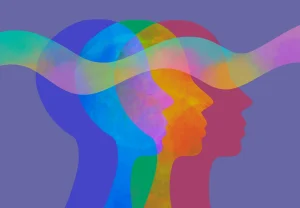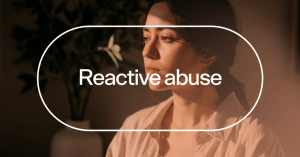Did you know that Facebook and other social media may be paving the way to bring attention to postpartum depression and postpartum psychosis? We communicate on social networks daily; connect, express our feelings and seek support from others.
Sadly, a news story reported a few years back that a young mother posted a cry for help on Facebook: she planned to take her 6 month old child’s life and then her own. Family alerted the police but they were not able to reach her in time and the outcome was devastating.
Postpartum Depression Misunderstood
Media reports of severe postpartum issues create shockwaves in the public. Thus shame becomes associated with postpartum depression. Many women who suffer during the postpartum period do not seek treatment for fear of being identified with those who take the lives of their children.
Cases of infanticide coupled with suicide make the news headlines however; it is very rare for postpartum depression to develop into postpartum psychosis. Fortunately, postpartum  psychosis can be treated successfully: early intervention and education is the key and saves lives.
psychosis can be treated successfully: early intervention and education is the key and saves lives.
A new mom may not be able to ask for help. She may also not look typically depressed and may even appear that she has it all together and be someone you would never consider to be suffering.
The Role of Social Media
In the age of shared communication a woman may now reach out through Facebook, Twitter, blogging and email. She may reveal certain symptoms or signs of postpartum depression, which can be experienced up to a year after the babe is born.
Knowing the signs of postpartum depression may prevent the unnecessary suffering of a new mother and allow those around her to identify the issue and advocate for help.
10 things A Mother Might Post Online When She Needs Help….
1. Feels anxious or panicky.
2. She has physical problems such as chest pain, racing heart, shortness of breath, dizziness, numbness in hands or feet, tingling sensations, nausea or upset tummy.
3. She has upsetting thoughts that she can’t get out of her mind.

4. She feels as if she is going crazy.
5. She feels sad or depressed.
6. She has problems eating or sleeping.
7. Feeling like she should have never became a mother.
8. She is feeling more irritable or angry.
9. Feeling like she can’t cope with it all.
10. Worried she might hurt her baby or herself.
Prevention
There is help and no woman has to suffer alone. Woman can recover and treatment outcomes are positive. Be an advocate for a mom and learn more about Postpartum Depression and educate those around you about the signs, symptoms, and myths.
Where Can I Get More Information?
- Postpartum Support International http://www.postpartum.net/
- http://www.fresno.ucsf.edu/pediatrics/downloads/edinburghscale.pdf
- http://www.postpartumprogress.com/
If a mom is struggling with her emotions and needs immediate help call 911 or take her to the nearest emergency room.
Also, let her know you are willing to walk with her through this by being supportive and not judgemental, help her find a counselor/therapist, and remind her she is not alone.
By bringing awareness, education and support to the feelings of postpartum depression, it will enhance and potentially save the lives of many moms that are struggling, as well as, their baby’s.
If you are struggling from postpartum symptoms then start your journey of healing today! We are here for you. Call Life Counseling Solutions at 407-622-1770 for a free phone consult of click here to make an appointment.
About the Author: Marva Caldwell
*Information gathered from Postpartum Support International, 2011
This material is designed for information purposes only. It should not be used in place of medical advice, instruction and/or treatment..







